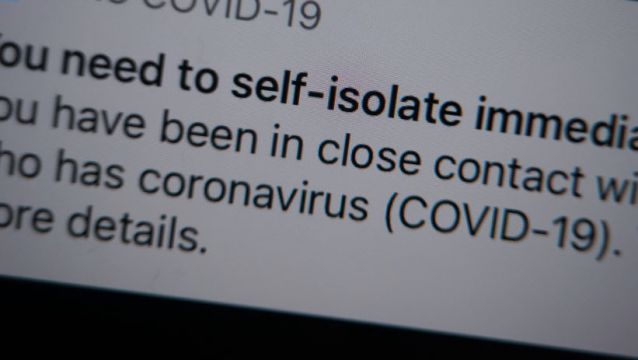With the Omicron variant leading to rising Covid-19 cases across the world, some Governments are beginning to rethink the isolation period for those infected.
With many European countries already reducing the isolation period from 10 to seven days, the Irish Government has also made a change to its guidance around isolation. Meanwhile, in the US the recommended isolation time has been cut to five days.
Here is an explanation of the rationale behind making such a change.
Why has the US changed the isolation period?
This week the US Centers for Disease Control and Prevention reduced the recommended isolation period for people with asymptomatic Covid to five days, down from 10, after which they are asked to wear masks for an additional five days.
The agency cited the extremely rapid spread of Omicron, which could force many more workers across industries to remain home in the coming weeks, even if they are not ill or infectious.
Ireland is facing a similar issue with many workplaces seeing a large amount of people out sick with Covid-19, causing staff shortages.
What data supports the decision?
CDC director Rochelle Walensky said on Wednesday that the decision was based on research showing that up to 90 per cent of Covid transmission occurred within five days of infection.
She said the agency balanced that with evidence that only a small minority of people with Covid have been willing to isolate for a full 10 days so far during the pandemic.
"We really want to make sure that we had guidance in this moment, where we were going to have a lot of disease, that could be adhered to, that people were willing to adhere to," Walensky said in an interview with CNN.
Walensky said in a White House briefing on Wednesday that standard PCR tests cannot be used to determine when a person can leave isolation because they can remain positive for several weeks.
New research suggests Omicron is milder but capable of resulting in far more infections, potentially leading to widespread absenteeism across the whole of society.
What has the Irish Government decided?
Amid a record 20,554 cases recorded on Thursday, the Government made changes to self-isolating advice for those who test positive for Covid-19.
Those aged 12 and over, who have had their booster vaccine jabs for at least seven days should self-isolate for seven days, instead of the previous advice of 10 days.
Those exiting isolation after seven days should:
- Limit to the greatest extent possible close contact with other people outside their household, especially in crowded, enclosed or poorly ventilated spaces
- Wear a face mask in crowded, enclosed or poorly ventilated spaces and where they are in close contact with other people
- Take an antigen test before entering crowded, enclosed or poorly ventilated spaces and prior to having close contact with other people from outside their household
- Avoid contact with anyone who is at higher risk of severe illness if infected with Covid-19
- Work from home unless it is essential to attend in person
Public health officials also made changes to the testing system, which has been put under strain in recent days.
Close to half of the latest swabs taken detected the virus, as test positivity rates have soared to record levels. Ireland's seven-day test positivity rate stood at 34.9 per cent on Thursday.
Despite tripling in recent weeks, testing capacity is still unable to meet demand as many people struggle to secure prompt PCR tests.
Have people criticised the change?
Disease experts in the US have said the changes in the isolation period for asymptomatic coronavirus infections lack safeguards and could result in even more infections as the United States faces a record surge driven by the Omicron variant.

A major concern voiced by scientists is that the isolation policy fails to distinguish between vaccinated and unvaccinated people, who recover from the virus at different rates. It also does not require testing to confirm that a person is no longer infectious before they go back to work or socialize.
"Unvaccinated people take much longer to clear the virus and not be infectious," said Dr Eric Topol, director of the Scripps Research Translational Institute. "Some people clear the virus in a day; others take a week or more."
He said the policy represented "a new low" for the CDC, saying it flies in the face of the Biden administration's pledge to hew closely to scientific evidence to curb the pandemic.
Topol and others said that there was not enough evidence of how Omicron behaves to support the five-day isolation recommendation, the decision to treat vaccinated and unvaccinated cases the same way, and the lack of a testing requirement at the end of that period. – Additional reporting: Reuters







